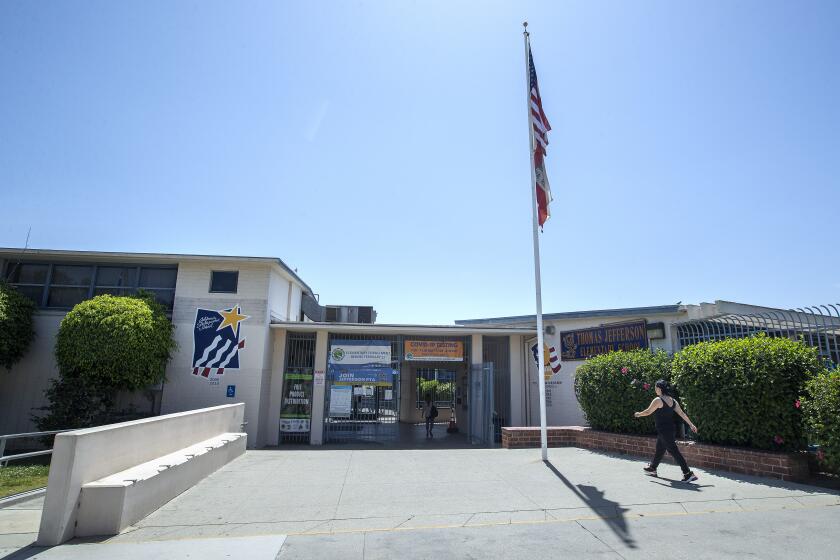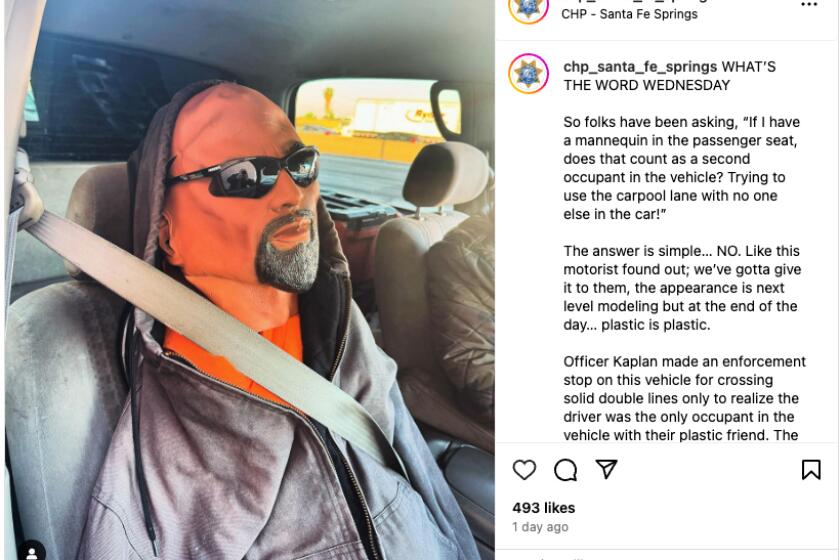Pennsylvania case a chilling one for death-with-dignity advocates
I keep waiting for the news that prosecutors in Pennsylvania have come to their senses and dropped criminal charges against Barbara Mancini.
But so far, that hasn’t happened, which means the Philadelphia resident, an emergency room nurse, may soon be on trial, accused of assisting in the February suicide of her gravely ill 93-year-old father.
“I can tell you that at times, the stress is unbearable,” said Joe Mancini, whose wife is under a judge’s gag order and cannot discuss the case against her.
Joe, a paramedic for the Philadelphia Fire Department, is working 60-hour weeks because his wife has been placed by her hospital on unpaid leave until the case is resolved. Her attorney fees have already run in the tens of thousands of dollars, Joe Mancini said. The couple’s two teenage daughters are distraught, and Barbara’s mother has been hospitalized with chest pains.
From this side of the country, a Palm Springs man has been following the case with keen interest.
“Isn’t it just awful?” asked Bill Bentinck, now 88, who was arrested in July of 2012 on suspicion of homicide in the death of his terminally ill wife.
When I visited Bentinck last year, he had just been released after three days in custody, when the Riverside County district attorney’s office decided not to pursue a case against him. While in custody, Bentinck was transferred from one jail to another in leg irons, and jailers ignored his plea for help with a chronic medical condition.
His arrest came after his wife, Lynda, tired of suffering with emphysema, decided to remove her oxygen supply and let nature take its course.
“It had become unbearable for her,” Bentinck said. The morning of her death, she asked him to fix her a drink, they said their goodbyes, and she disconnected the oxygen supply. Soon after, she passed away.
The circumstances in Pennsylvania are somewhat different. It’s not clear, in fact, whether Barbara Mancini’s father, Joe Yourshaw, enlisted his daughter to help him end his life, as the prosecution contends, or whether he was merely trying to ease his pain when he asked for the morphine.
Yourshaw was in hospice care at the time and gravely ill, with renal failure and multiple other life-threatening conditions. While his daughter was caring for him, he asked for some morphine and she handed it to him. Shortly after he took it, a hospice nurse arrived and dialed 911, and Yourshaw was revived even though, according to published reports, he had signed a do-not-resuscitate order.
He died four days later.
“He knew he was dying but he accepted dying, and my mother-in-law had accepted that he wanted to die,” said Joe Mancini, who described how his father-in-law, a World War II veteran, had become so sick “he’d be screaming in pain” just having his shirt buttoned.
Having watched my own father wither away in his last days of hospice care, I can say with certainty that if he’d asked for morphine, I’d have given him as much as he wanted. I’d have given it to him whether he wanted it to ease his pain or whether he’d made it crystal clear that he wanted me to help him die. And the idea that such an act of love and compassion can be considered a crime is beyond my comprehension.
There are times, I’ll admit, when assisting in death can be messy morally and legally. There might be cases where a family member was pushing a loved one to pull the plug for financial or other reasons. And it’s understandable that some doctors don’t want to get caught up in those kinds of family dramas.
Former California state legislator Lloyd Levine, who along with former legislator Patty Berg made several attempts beginning in 2004 to push legislation that was patterned after Oregon’s Death With Dignity Act, thinks states can craft laws that protect both patients and the family members they enlist to help them. Under the law he proposed, terminal patients could ask for and obtain prescriptions from their doctors to end their lives, but they “would have had to self-administer the drug.”
I spoke to both Levine and Berg this week, and they remain supportive of the idea of offering Californians the option of aid in dying, but they’re also highly aware that a ballot campaign would require millions of dollars and would stir up intense opposition. Their own efforts were shot down by two powerful and monied institutions that might play roles again if legislation or a ballot initiative surfaces: the Roman Catholic Church and the California Medical Assn.
The latter takes its lead from the American Medical Assn. position that “physician-assisted suicide is fundamentally incompatible with the physician’s role as healer, would be difficult or impossible to control, and would pose serious societal risks.”
But when a terminally ill patient chooses not to go on living with suffocating limitations and indignities, is he or she committing suicide or dying well? And shouldn’t it be the patient’s choice?
Since his arrest, Bill Bentinck told me Monday evening, “I’m kind of an activist on this issue now.”
He said he’s joined Compassion & Choices, which advocates for more end-of-life choices and hopes to one day make aid in dying available in California and beyond, either through legislation, ballot initiative or the courts.
“I try to do things that are helpful,” said Bentinck, who visits retirement centers in the Palm Springs area and hands out literature on the importance of advance healthcare directives, which allow people to opt out of life-extending measures they do not want doctors to perform during critical illness or injury.
“And I’m working with a Compassion & Choices chapter in Northern California to get a bunch of signatures to be sent to the Legislature, so we can get the law changed in California.”
None of that will help Mancini, of course. Let’s just hope that common sense prevails in Pennsylvania.
More to Read
Start your day right
Sign up for Essential California for news, features and recommendations from the L.A. Times and beyond in your inbox six days a week.
You may occasionally receive promotional content from the Los Angeles Times.







